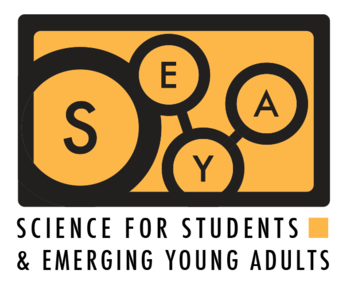Whenever I mention that I specialize in religion and science, one of the first questions is "Are you a scientist?" Well, actually, I'm not. And there's a reason. I'm a Christian -- as well as a pastor and theologian specializing in this field -- who has found that scientific insights enhance, challenge, and strengthen my faith. Moreover, I've discovered, for the Christian message to have any impact today, it must engage science.
To quote the bestselling author C. S. Lewis (and a personal favorite), "Mere Christianity" has to meet mainstream science.
That's why I've focused much of my life's work -- including a current project with emerging adults, SEYA (more on that below) -- on integrating faith and science. And although the current Pope has plenty of positive things to say about science, I often quote John Paul II in support, "Science can purify religion from error and superstition. Religion can purify science from idolatry and false absolutes."
Naturally, there are prominent scientists who are Christians, like the head of the National Institutes of Health, Francis Collins who recently was interviewed by National Geographic with the title, "Why I am a Man of Science -- and Faith."
"Science and faith can actually be mutually enriching and complementary once their proper domains are understood and respected." -- Francis Collins
Just this spring, I participated on a panel at an exhilarating conference sponsored by DoSER or Dialogue on Science, Ethics, and Religion, a part of the largest science organization in the world, the American Association for the Advancement of Science (AAAS). "Perceptions: Science and Religious Communities" brought together evangelical Christians and scientists for mutual conversation with the likes of Nobel-Laureate physicist William D. Phillips, senior astrophysicist at the NASA Goddard Space Flight Center (and head of DoSER) Jennifer Wiseman; and Rice University sociologist Elaine Howard Ecklund, who surveyed over 10,000 Americans and found that that nearly 70 percent of self-identified evangelicals (often viewed as anti-science) do not see religion and science as being in conflict.
So it's not hard to find people of deep faith and glittering scientific credentials out there.
But the dialogue of Christian faith and science has to increase. We need people who love science -- but aren't technically "scientists" -- to bring scientific insights to our beliefs. Many of us know about the rise of the "Nones" (those who answer "none" to the question, "What is your religious affiliation?"), which currently comprises 30-34 percent of 18-30 year olds in the United States. Barna President and researcher David Kinnaman studied why this demographic is leaving the church in his book You Lost Me and discovered that one of the six reasons is this: they identify the church as "Antiscience."
And so I've taught about faith and science in churches for the past two decades, always with an eye to what it means for college and post-college emerging adults. That's why I'm heading up a grant project, Science for Students and Emerging, Young Adults (or SEYA), which looks at how 18-30 year olds form their attitudes on faith and science and how they change. With target groups at Columbia University, the Silicon Valley, and my hometown of Chico, one of the many key findings from our surveys is that even if many emerging adults perceive that science and religion conflict, when someone they trust discusses the topic and demonstrates integration -- a pastor, college group leader or friend -- they want to hear more. Susan, a grad student who drove 100 miles to a seminar on engaging Genesis 1 and 2 with the Big Bang, quantum cosmology, and evolutionary science, loved the it and posed a simple question, "Why don't we hear more about this in church?"
Why don't we hear more about faith and science in congregations, young adult fellowships, college ministries, and youth groups? One of Kinnaman's other findings was that 52 percent of youth group members will ultimately enter a science-related profession, but only 1 percent of youth groups talk about science once a year! What I'm working toward is funding dozens of ministries with college students and post-college emerging adults to engage Christian faith and science because, if Kinnaman is right, unless Christian congregations do this work, there may not be much of church left after a few decades to engage science.
I cited C. S. Lewis at the top of this piece. He also noted that to twist science as a means to bolster Christianity is a "sin and a folly." This means the church needs scientists in this task. They keep us honest, helping us avoid "superstition and error." But I also hope a tribe of non-scientists will bring science to church. Let's not leave that task just to the specialists.

